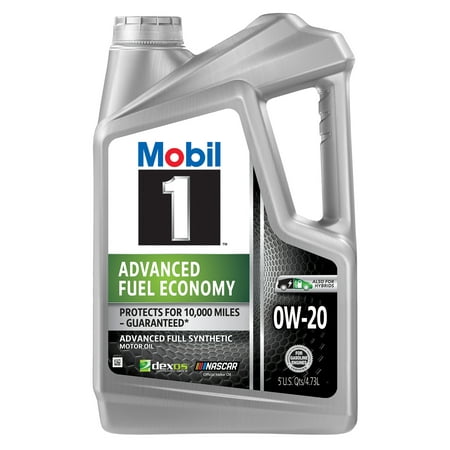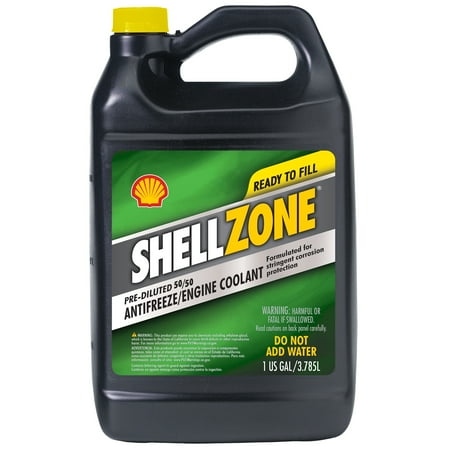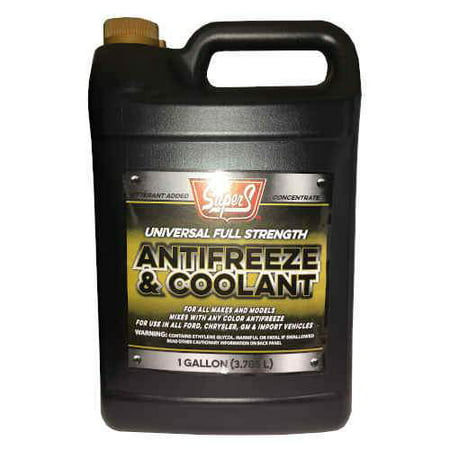(12 Pack) Mobil 1 Advanced Fuel Economy Full Synthetic Motor Oil 0W-20, 5 Quart
Mobil 1 Advanced Fuel Economy full synthetic motor oil 0W-20 helps to improve fuel economy* and extend engine life for vehicles of all ages. Mobil 1 Advanced Fuel Economy is designed to deliver outstanding protection from the five factors that can damage engines over time and to protect critical engine parts for up to 10,000 miles between oil changes**. Its uniform synthetic oil molecules reduce friction, helping to prevent deposits and sludge buildup. Providing outstanding engine wear protection, this technologically advanced formulation offers excellent internal engine heat protection (up to 500 degrees Fahrenheit), and low-temperature capabilities (to -40 degrees Fahrenheit), supporting quick cold-weather starting and ultra-fast protection. Mobil 1 Advanced Fuel Economy meets ILSAC GF-6 standards to help provide low-speed pre-ignition (LSPI), timing chain wear protection while keeping your engine clean and helping your fuel economy. Available in 1-qt. and 5-qt. bottles, Mobil 1 Advanced Fuel Economy full synthetic motor oil 0W-20 also helps control oxidation to prevent oil breakdown and is recommended for all types of modern vehicles, including high-performance turbo-charged, and supercharged gasoline and diesel multi-valve fuel-injected engines found in passenger cars, SUVs, light vans, and light trucks. Mobil 1 is AmericaâÂÂs leading synthetic motor oil brand at retail***, recommended by car builders and experienced mechanics, and is the Official Motor Oil of NASCARî. (*Potential fuel economy improvement obtained by switching from higher-viscosity oils to a lower-viscosity grade. Actual savings are dependent upon vehicle/engine type, outside temperature, driving conditions, and your current engine oil viscosity. **Protects for up to 10,000 miles or 1 year, whichever comes first. To learn more about the Mobil 1 Limited Warranty, visit Mobil.US. ***Source: The NPD Group/ Retail Tracking Service/ Dollar Sales/ 52 weeks ending April 4, 2020)







Mobil 1 Advanced Fuel Economy full synthetic motor oil 0W-20 is low-viscosity to help improve fuel economy*Helps to protect critical engine parts for up to 10,000 miles between oil changes**, controlling oxidation to prevent oil breakdown and maintaining excellent viscosityMeets ILSAC GF-6 standards to help provide low-speed pre-ignition (LSPI), timing chain wear protection while keeping your engine clean and helping your fuel economyHelps extend engine life by working to prevent damaging deposits and sludge buildupProvides excellent internal engine heat protection (up to 500 degrees F) and low temperatures (to -40 degrees F)





Reviews
There are no reviews yet.